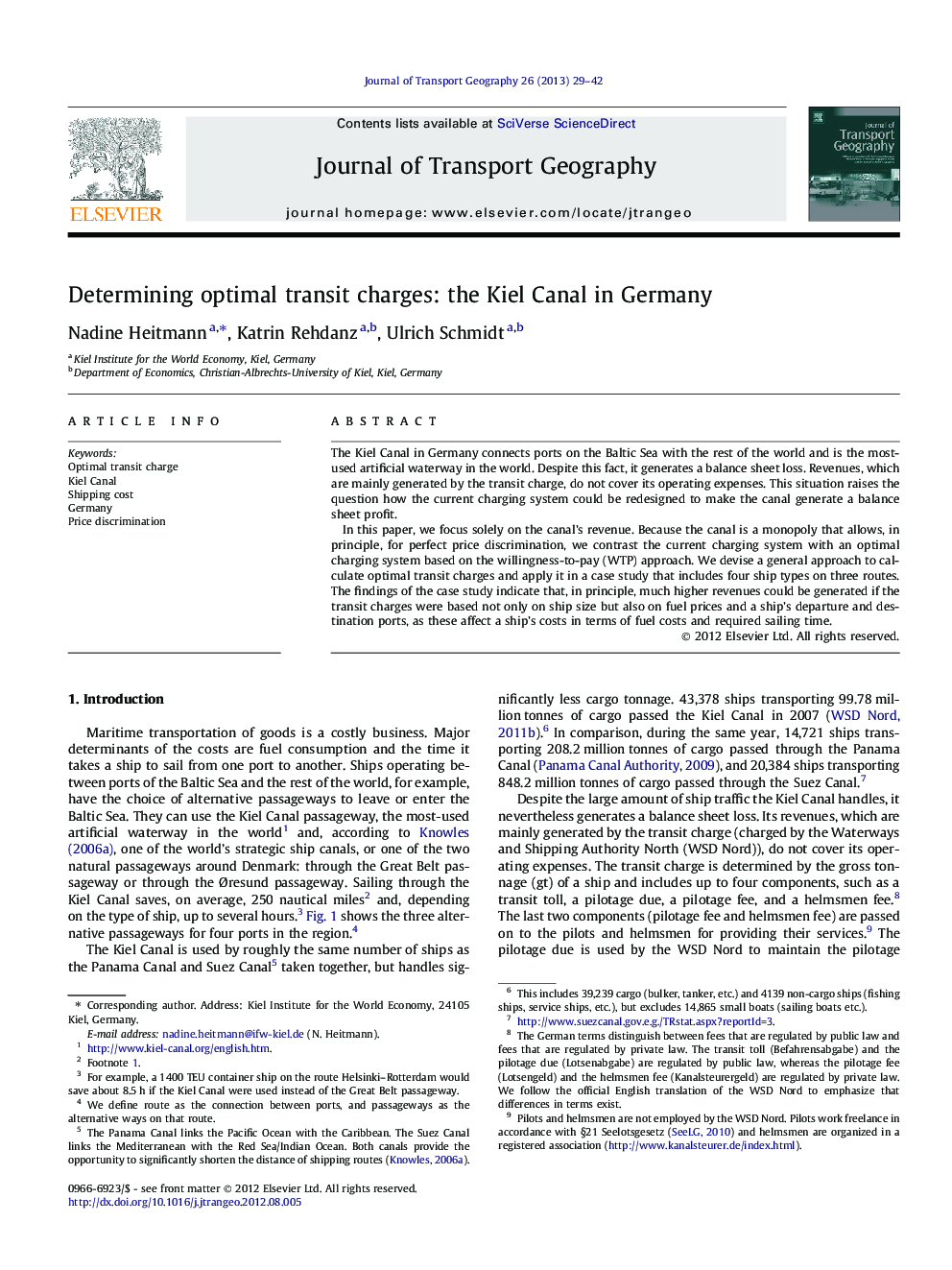| کد مقاله | کد نشریه | سال انتشار | مقاله انگلیسی | نسخه تمام متن |
|---|---|---|---|---|
| 1059389 | 1485441 | 2013 | 14 صفحه PDF | دانلود رایگان |

The Kiel Canal in Germany connects ports on the Baltic Sea with the rest of the world and is the most-used artificial waterway in the world. Despite this fact, it generates a balance sheet loss. Revenues, which are mainly generated by the transit charge, do not cover its operating expenses. This situation raises the question how the current charging system could be redesigned to make the canal generate a balance sheet profit.In this paper, we focus solely on the canal’s revenue. Because the canal is a monopoly that allows, in principle, for perfect price discrimination, we contrast the current charging system with an optimal charging system based on the willingness-to-pay (WTP) approach. We devise a general approach to calculate optimal transit charges and apply it in a case study that includes four ship types on three routes. The findings of the case study indicate that, in principle, much higher revenues could be generated if the transit charges were based not only on ship size but also on fuel prices and a ship’s departure and destination ports, as these affect a ship’s costs in terms of fuel costs and required sailing time.
► This paper presents an approach to calculate optimal transit charges based on the willingness-to-pay (WTP) approach.
► The current charging system of the Kiel Canal is contrasted with an optimal charging system.
► A case study including four different ship types is presented.
► Higher revenues could be generated if the transit charges were based also on a ship’s destination and departure ports.
Journal: Journal of Transport Geography - Volume 26, January 2013, Pages 29–42